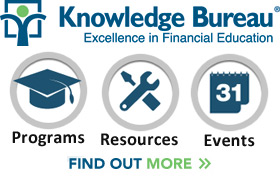
Immediate Expensing Rules: Good Tax Policy?
Over the course of the last two federal budgets (April 16, 2024 and November 4, 2025), the rules for claiming Capital Cost Allowance (CCA) have been uncertain. The proposal to extend immediate expensing rules for certain acquired assets were paused for over a year and then re-introduced in a series of four complex measures which together with new rules for Scientific Research and Experimental Development have become known as the “Productivity Super-Deduction”. A backdrop appears below. The key question: will this complexity be effective as an economic stimulator?DAC Sneak Peek: Meet Our Speakers & This Year’s DAC-in-a-Box
 The experience at this year’s Virtual DAC Acuity Conference may just beat out last year’s – which the Globe and Mail touted as one of Canada’s most innovative virtual conferences. Check out this sneak peek through our new speaker videos and DAC-in-a-Box program guide, and then enrol by September 30 to take advantage of early-bird tuition prices.
The experience at this year’s Virtual DAC Acuity Conference may just beat out last year’s – which the Globe and Mail touted as one of Canada’s most innovative virtual conferences. Check out this sneak peek through our new speaker videos and DAC-in-a-Box program guide, and then enrol by September 30 to take advantage of early-bird tuition prices.
Uncertainty Lingers: Majority Won’t be Hiring in 2022
 The reasons are varied, but 60% of KBR readers polled last month said they won’t be hiring new seasonal staff in 2022 and the prevailing reason is uncertainty. Those who will be hiring won’t be doing so before year end but are busy making training plans now. Here are some of their thoughts on preparing for tax season 2022:
The reasons are varied, but 60% of KBR readers polled last month said they won’t be hiring new seasonal staff in 2022 and the prevailing reason is uncertainty. Those who will be hiring won’t be doing so before year end but are busy making training plans now. Here are some of their thoughts on preparing for tax season 2022:
New! August Updates to EverGreen Explanatory Notes
 Tax pros need to stay up-to-date all year long! Knowledge Bureau’s Evergreen Explanatory Notes should be your go-to reference for answers personal, corporate and GST/HST questions. It’s your own top notch tax research library that seamlessly links you to CRA publications and forms while providing educational notes and examples. Best of all it is included in all certificate courses or as a stand-alone subscription. Here are the topics updated in August:
Tax pros need to stay up-to-date all year long! Knowledge Bureau’s Evergreen Explanatory Notes should be your go-to reference for answers personal, corporate and GST/HST questions. It’s your own top notch tax research library that seamlessly links you to CRA publications and forms while providing educational notes and examples. Best of all it is included in all certificate courses or as a stand-alone subscription. Here are the topics updated in August:
Claiming Quarantine Hotels & Testing Costs
 It’s a frustrating time: the fourth wave is upon us, and soon too will be tax season 2022. While the need to stay in quarantine hotels ended on August 9, many Canadians expended significant sums to come back to Canada from abroad during the pandemic. Are those costs deductible? The answer depends on the taxpayer profile and circumstances of the expenditure, according to recent CRA interpretations.
It’s a frustrating time: the fourth wave is upon us, and soon too will be tax season 2022. While the need to stay in quarantine hotels ended on August 9, many Canadians expended significant sums to come back to Canada from abroad during the pandemic. Are those costs deductible? The answer depends on the taxpayer profile and circumstances of the expenditure, according to recent CRA interpretations.
Long Term Care: Turning Grief and Rage into Change
 It’s an issue that made devastating headlines for months: the suffering and death of vulnerable seniors before our very eyes. All the worse for the raw fact that they lived in deplorable conditions of neglect. According to Karen Henderson, Founder of the Long-Term Care Planning Network, planning for our own aging is a critical element of tax and financial planning discussions with advisors. But it should also be a key issue in today’s national discussions to enable responsible change. Her passionate story is Knowledge Bureau’s Special Guest Report this week:
It’s an issue that made devastating headlines for months: the suffering and death of vulnerable seniors before our very eyes. All the worse for the raw fact that they lived in deplorable conditions of neglect. According to Karen Henderson, Founder of the Long-Term Care Planning Network, planning for our own aging is a critical element of tax and financial planning discussions with advisors. But it should also be a key issue in today’s national discussions to enable responsible change. Her passionate story is Knowledge Bureau’s Special Guest Report this week:
Pension Recipients and Heirs Beware: German Pension Tax Collection Steps Up
 Do you have clients who are recipients of German social security pensions? If so, many of them may be very elderly. Unfortunately, they and their heirs may be experiencing a new stressor: the tax department in Germany, Finanzamt Neubrandenburg, is clamping down on taxes they think are owing by delinquent German pension recipients living in Canada and charging interest and penalties. The issue is: can they?
Do you have clients who are recipients of German social security pensions? If so, many of them may be very elderly. Unfortunately, they and their heirs may be experiencing a new stressor: the tax department in Germany, Finanzamt Neubrandenburg, is clamping down on taxes they think are owing by delinquent German pension recipients living in Canada and charging interest and penalties. The issue is: can they?

